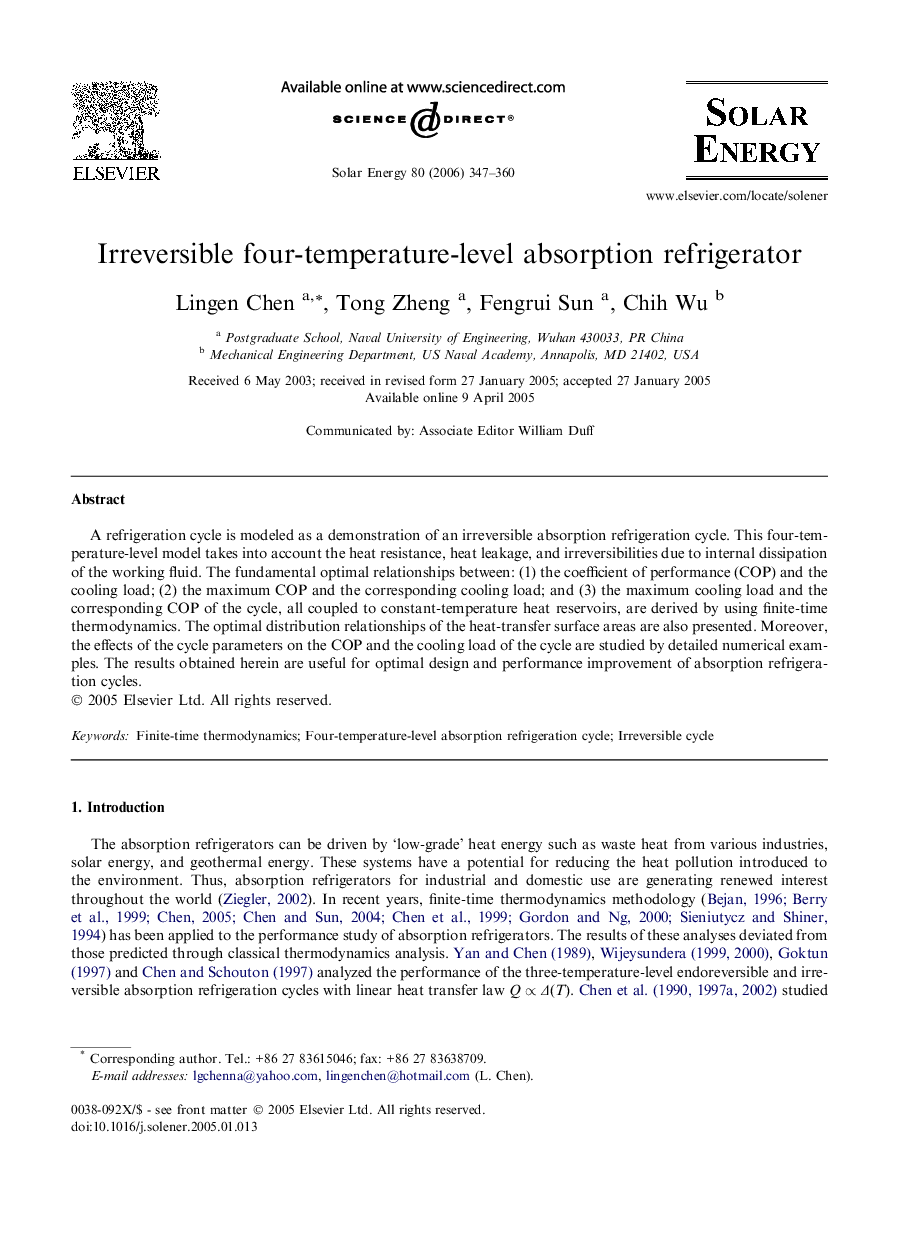| Article ID | Journal | Published Year | Pages | File Type |
|---|---|---|---|---|
| 1552407 | Solar Energy | 2006 | 14 Pages |
Abstract
A refrigeration cycle is modeled as a demonstration of an irreversible absorption refrigeration cycle. This four-temperature-level model takes into account the heat resistance, heat leakage, and irreversibilities due to internal dissipation of the working fluid. The fundamental optimal relationships between: (1) the coefficient of performance (COP) and the cooling load; (2) the maximum COP and the corresponding cooling load; and (3) the maximum cooling load and the corresponding COP of the cycle, all coupled to constant-temperature heat reservoirs, are derived by using finite-time thermodynamics. The optimal distribution relationships of the heat-transfer surface areas are also presented. Moreover, the effects of the cycle parameters on the COP and the cooling load of the cycle are studied by detailed numerical examples. The results obtained herein are useful for optimal design and performance improvement of absorption refrigeration cycles.
Related Topics
Physical Sciences and Engineering
Energy
Renewable Energy, Sustainability and the Environment
Authors
Lingen Chen, Tong Zheng, Fengrui Sun, Chih Wu,
